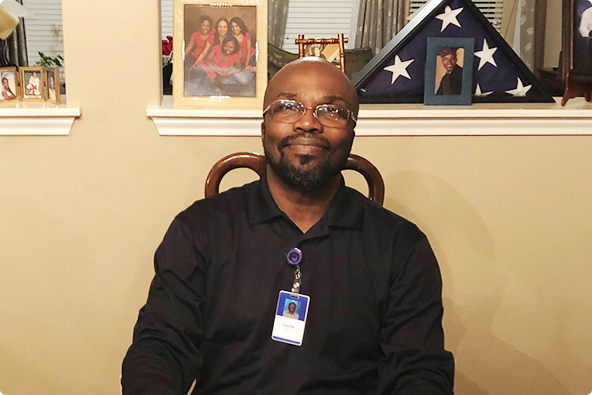It might not be rocket science, but former aerospace engineer Curtis Ford shares how his background across two important fields in engineering led to his career here, where he helps oversee the quality of Luminex products.
Because high-quality products require premium parts, what we don’t manufacture ourselves must be sourced from trusted suppliers—that’s where Curtis comes in. As a Supplier Quality Engineer, he monitors the quality of supplier-sourced parts, helping ensure our products meet the high standards we’ve set for them. Curtis joined the Luminex family in 2018 and holds a bachelor’s degree in manufacturing engineering from Boston University.

Q: What are your responsibilities at Luminex?
A: Many of the parts used in Manufacturing are made by suppliers—things like printed circuit boards, lasers, chassis, connectors, and computer hard drives—so it’s important that we have a rigorous process for monitoring supplier quality to ensure every part meets our product specification requirements. I am responsible for this process, ensuring that parts from our suppliers meet applicable quality assurance (QA) levels and good manufacturing practice (GMP) requirements.
Q: What did you do before this job?
A: I was a Process Quality Engineer. I have worked in both aerospace and medical products engineering.
Q: How did you get into engineering?
A: I’m a product of the Apollo era at NASA. I used to watch those launches with so much interest. My dad worked as a technician on the lunar module vehicle for Northrop Grumman Space Systems and was always involved in technical stuff, so he inspired me to pursue my engineering interests. The high school I went to, Brooklyn Tech, was also heavily focused on engineering, manufacturing, and science.
Q: What drew you to Luminex?
A: I worked in the medical field at Johnson & Johnson before working in the aerospace industry for some time and I wanted to return to it. I’ve always wanted to be involved in building products that help people, and I enjoy knowing that our products help save lives.
Q: If you could solve any clinical or genetic challenge, what would it be?
A: I would find a cure for cancer. I am a prostate cancer survivor, and my wife is a colon cancer survivor, so it has affected my family deeply. I am happy to report that we both recovered, and due to early detection, we both remain 100 percent active and healthy.
Q: If you weren’t an engineer at Luminex, where would you be?
A: I would be a historian! I would love to write a book focused on African American soldiers and sailors in the Civil War. My father was a World War II Navy veteran, and there’s some Civil War history in my wife’s family—specifically the Massachusetts 54th Colored Regiment, which fought at Fort Wagner, South Carolina.
Q: What is something about you that no one at Luminex knows?
A: I am an election judge for Guadalupe County, which means I’ve taken an oath to uphold legal requirements that ensure all eligible citizens in Texas are able to vote for the candidate of their choice, regardless of race, religion, gender, creed, sexual orientation, and/or physical ability. The protests this year over the discrimination African Americans face inspired me to help ensure that everyone who wants to vote has access to their polling places. Everyone’s voice should count towards determining their elected officials—from the local district attorney to the president of the United States.
Q: What is your favorite thing to do in Austin on the weekend?
A: Attend concerts or music festivals, like Austin City Limits. They’ve had performers as diverse as Willie Nelson, Stevie Wonder, Gary Clark Jr., the Red Hot Chili Peppers, and Paul McCartney, to name a few. When I moved here, it quickly became apparent why Austin is considered the live music capital of the world.
